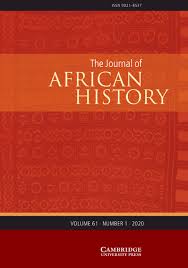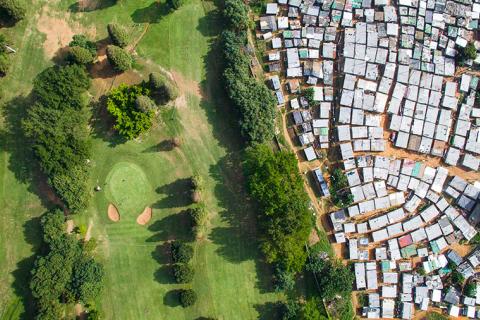Topics and Regions
Rick has over 40 years experience working in the land sector in Southern Africa. He is part of the Land Portal knowledge engagement team working to research and develop knowledge resources including data stories, blogs and in-depth country profiles for Southern, Central and Eastern Africa.
Rick is also a Senior Research Associate with Phuhlisani NPC - a South African land sector NGO and the curator of specialist Southern African land news and analysis website https://knowledgebase.land
He tweets on land related issues Twitter account https://twitter.com/KnowledgebaseL
He has a PhD from the University of Cape Town. His research in Langa, Cape Town features as the central case study in a recent book Urban Planning in the Global South (2018), co-authored with the late Vanessa Watson, which examines the on-going contestations over land and housing in the rapidly growing cities of the global South.
Details
Location
Contributions
Displaying 361 - 370 of 468The Validity and Challenges of the Traditional Chieftaincy in Modern Decentralization or Decentralized Governance for Development (DGD) in Lesotho
The paper discusses chieftaincy and colonialism in Lesotho, institutional roles of chieftaincy, the role of chieftaincy in the era of modern democracy/DGD, the relations between the democratic local authorities and chieftaincy in Lesotho and the role of chieftaincy and its constraints in the decentralized system of Lesotho. The paper directly contributes knowledge in public management sciences and administrative policy systems.
Measuring Gender, Development, and Land: Data-Driven Analysis and Land Reform in Lesotho
Development agencies are increasingly making decisions and evaluating success on the basis of an ever-growing supply of data. Some argue that the proliferation of data improves development outcomes for states and people targeted by agencies' interventions, as well as the accountability of those agencies. Others argue that problems of selection bias, a lack of longitudinal records, and misuse of data can ignore or even exacerbate the problems that development agencies seek to mitigate.
Development, politics and the centralisation of state power in Lesotho, 1960-75
The rhetoric of development served as a language for Sotho politicians from 1960–70 to debate the meanings of political participation. The relative paucity of aid in this period gave outsized importance to small projects run in rural villages, and stood in stark contrast to the period from the mid-1970s onwards when aid became an ‘antipolitics machine’ that worked to undermine national sovereignty.
South African land news #March 2020
Every day since Pres Ramaphosa was elected into office we have searched out South African land-related news which is curated on our website knowledgebase.land. This publication provides a brief summary of land news across a range of categories for March 2020
COVID-19: Trade restrictions are worst possible response to safeguard food security
As COVID-19 spreads around the globe, fears of a deep global recession are mounting. Some also fear that food supplies may start running short, especially if supply chains are disrupted. Others fear that agricultural production may be disrupted by containment measures that restrict workers from harvesting and handling crops.
Zim announces price freeze as food costs skyrocket during lockdown
Zimbabwe has announced a price freeze on goods and services and ordered businesses to instead revert to prices obtained on 25 March 2020, just before the country went into a nationwide lockdown.
At a meeting attended by representatives of the manufacturing and retail sector, Vice President Kembo Mohadi, who is also chair of the Covid-19 taskforce, said the country has been experiencing escalating food prices that has made essentials unaffordable for many.
Skyrocketing prices
Land News South Africa: Urban land 31 March - 26 April 2020
Urban land
Our urban land pages have been filled with the struggles of people living in townships and informal settlements during the pandemic. One of the controversial state responses to Covid 19 has been to propose the ‘thinning’ of densely settled areas in a bid to slow the speed of community viral transmission. These plans have been met with scepticism by residents of informal settlements who argued that such measures, taken without adequate consultation, would meet with resistance and be destined for failure.



